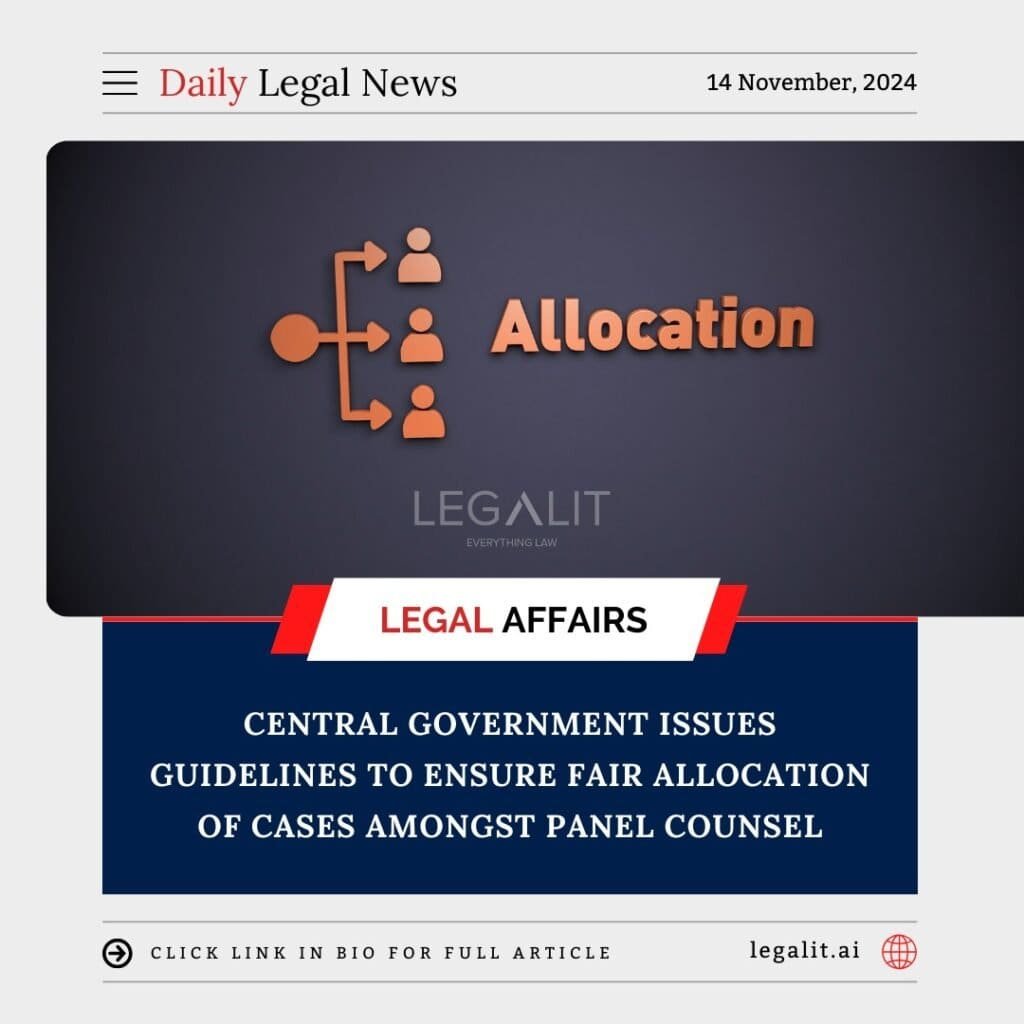
The Central Government has released new guidelines aimed at ensuring a balanced and fair distribution of cases among panel counsel representing the government in various legal matters. These guidelines aim to promote transparency and equitable workload allocation among government panel advocates.
Background:
Government-appointed panel counsel are responsible for representing the state in numerous cases across different courts, including the Supreme Court, High Courts, and subordinate courts. However, there have been longstanding concerns regarding favoritism and unequal case distribution within panel counsel, with some advocates receiving a disproportionate workload. The newly issued guidelines seek to address these issues and bring transparency to the system.
Government’s Rationale:
The government emphasized that fair case distribution among panel counsel is essential to ensure efficiency and impartiality in the legal representation of state matters. By implementing these guidelines, the government aims to avoid biases in case assignments and create a more structured and balanced approach. The move also reflects the need for merit-based case assignments to ensure that panel counsel are used to their full potential.
Existing Measures:
The guidelines are part of a broader initiative by the government to improve the functioning of legal representation in public interest matters. Alongside fair case allocation, panel counsel are required to submit performance reports periodically, enabling authorities to monitor and evaluate their effectiveness. The government also holds regular reviews of panel counsel performance to identify gaps and make necessary adjustments in case assignments.
Conclusion:
The new guidelines mark a significant step toward enhancing fairness and transparency in the allocation of cases among government-appointed counsel. By fostering a balanced workload and impartiality in case assignments, the government aims to strengthen its legal representation across various jurisdictions, ensuring that each case receives adequate attention and expertise.